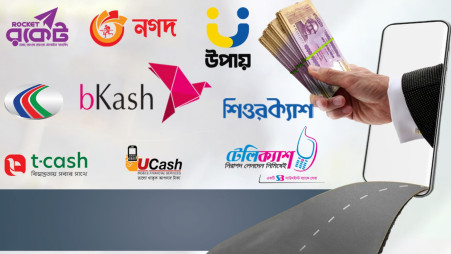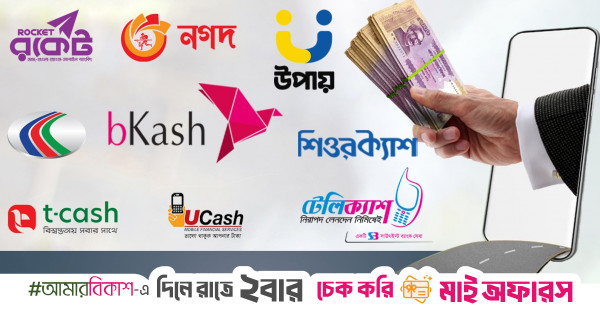“Bangladesh has achieved remarkable growth in registrations, but activation and sustained use remain challenges,” said one industry researcher. “The gap indicates untapped potential, but also persistent hurdles that discourage regular transactions.”
TBS Report
01 October, 2025, 09:40 am
Last modified: 01 October, 2025, 02:51 pm
Illustration: Ashrafun Naher Ananna/TBS Creative
“>

Illustration: Ashrafun Naher Ananna/TBS Creative
Mobile financial services in Bangladesh have seen a rapid surge in registered accounts and transaction volumes, reshaping how millions handle money, but a wide gap between sign-ups and active users is holding back growth compared with neighbouring markets.
A research paper titled “Bridging the gender gap in mobile payment services: insights from consumers of Bangladesh”, published in Natur,e reveals that registered mobile money accounts climbed to 236.7 million by December 2024, up from 220.1 million a year earlier, according to industry data. Average daily transactions jumped 34% year-on-year to $439 million, underscoring how services such as bKash, Nagad and Rocket are steadily displacing cash in retail purchases, remittances and bill payments.
Yet only 37.6% of those accounts – 88.9 million – are active, highlighting a significant drop-off between registration and regular usage. Analysts point to several barriers: high data costs, some of the slowest internet speeds in South Asia, limited smartphone penetration, and low digital literacy among rural and female users.
Keep updated, follow The Business Standard’s Google news channel
“Bangladesh has achieved remarkable growth in registrations, but activation and sustained use remain challenges,” said one industry researcher. “The gap indicates untapped potential, but also persistent hurdles that discourage regular transactions.”
Gender inequalities are particularly stark. Men are far more likely to own mobile phones and hold mobile money accounts, while women often lack digital skills or depend on others to operate apps. The cost of mobile internet, among the region’s highest, also keeps many low-income users offline.
Since their launch in 2011, mobile financial services have expanded rapidly, giving millions access to formal banking for the first time. Thirteen providers now operate nationwide, pushing digital payments into markets, chain stores and e-commerce.
Still, cash remains dominant outside urban centres. Industry insiders warn that unless Bangladesh narrows the gap between registrations and active use, it risks trailing neighbours like India and Pakistan in digital payments adoption.
“Digital payments are clearly an emerging market here,” the researcher added. “The next big leap will come from converting registrations into active, habitual use across all segments of society.”


